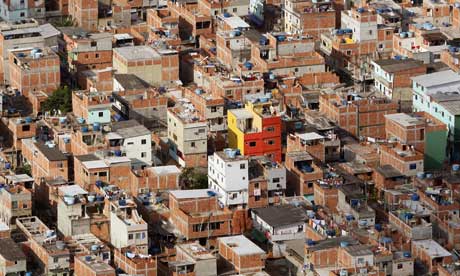Question for Fernando: What happens to personal debts in an economic collapse? How do people make monthly payments on debts when the economy implodes?
Thanks,
Janae
You basically still have to pay. If you owe 1000 USD and the dollar devaluates you still have to pay 1000 USD. If the dollar collapses and a week later those 1000 USD are worthless or at least worth less, then you pay back in that worthless money and there’s a chance you may have benefited from the event by paying back for whatever you got with your money in currency that is now worth less, while the property, goods or capital you bought or invested it retains its value much better. Then again, laws may be passed so as to avoid further economic damage by which your debt is adjusted to inflation. This will be very much contract specific but as we all know laws are written with one hand and changed with the other. In any case, chances are that if you buy property, cars or other durable goods with that money and some time later the economy collapses, you probably benefit from it as long as you’re able to keep making the payments and the inflation adjustment (if there is one) isnt too bad.

- Tent town in USA
Same happened to others but the other way around.
They paid for the debt and a few weeks later realized that if they had waited they would have saved ¾ of their money.
People that got into debt in dollars for a house, machinery, they were lucky because since the problem was so big most debts were pesified, meaning they paid back at a 1 dollar =1.4 pesos rate or so if they had the debt in dollars, or simply paid back in pesos if the debt was contracted in pesos. Having debt in devaluated pesos was of course the most beneficial scenario given that their debt was suddenly reduced to 25% of the original amount.
Of course you no longer got paid in a currency that was 1 to1 with the USD, but yes, it was a sweet deal for some.

- Favela in Brazil
Mortgages
Regarding mortgages in Argentina, certain laws were implemented to stop people from losing their homes, but it just worked in a smaller percentages of the cases.
A law was passed, Ley 25.798, which gave you a year before you had to continue making your mortgage payments. The mortgage was updated to the current price of the property and monthly payments could not be greater than 25% of the family’s income. This only benefited those that had bought the property between January 2001 and September 2003, the property had to cost less than 100.000 USD or the equal amount converted to pesos and it had to be your only property, the one you live in. This of course meant that the law only benefited the lower income buyer, and only those that bought during that period of time. As for those not covered by this law, a thousand homes went under the hammer per month.
Here’s the link explaining all this but its in Spanish:
http://www.contactoprofesional.com/abogados/hipotecas.htm
What happens if you cant make the payments? Accounts get frozen, and any money coming into your account is immediately taken to pay for those debts. You lose everything little by little and become poor or even fall below the poverty bracket into extreme poverty and indigence, losing it all and becoming homeless. That happened to hundreds of thousands. I know of several people that had to move back with their parents, other relatives of friends to live in their kitchens or living rooms for long periods of time, and those are the lucky ones. Those that didn’t have family to take them in, they ended up living on the streets.
What does all this mean?
Lets suppose for a minute that the United States collapses economically. If it does, then its not hard to see similar measures being taken: Maybe some of the poorest people that have debt may be able to benefit from some emergency law that buys them a bit more time, although it may be of little or no help in the end. The financial help or other extraordinary measures or laws passed to help the middle class would be even less. Ultimately you’re looking at the poor and middle class taking most of the financial damage, with a large chunk of the American society falling a few more steps of the social ladder into even deeper poverty.
FerFAL








1 comment:
Ferfal is correct -- you only have to look at what is happening in the "liberal Democrat" state of Maryland.
Maryland allows Deed of Trust in addition to Mortgages. The difference being that the bank can foreclose on a Deed of Trust quickly and cheaply with only short notice to homeowner and cursory overview by courts.
Unlike western states that use such deeds , however, Maryland then lets the lender collect on the deficiency -- unpaid debt left over if sale of house yielded less than the loan.
So if you owe $180,000 the bank can abruptly sell the house (maybe to one of their buddies) at public auction for $30,000. But they don't come after you for the other $150,000 at that point lest you declare bankruptcy. No, they let you find a job, work for several years, build up some savings and then --WHAM! -- hit you without warning for the remainder:
http://www.washingtonpost.com/investigations/lenders-seek-court-actions-against-homeowners-years-after-foreclosure/2013/06/15/3c6a04ce-96fc-11e2-b68f-dc5c4b47e519_story.html
Democratic politicans differ from Republican politicans only in being bigger liars and hypocrites by pretending to care for the common citizen. In reality, Both work for the Rich.
Post a Comment